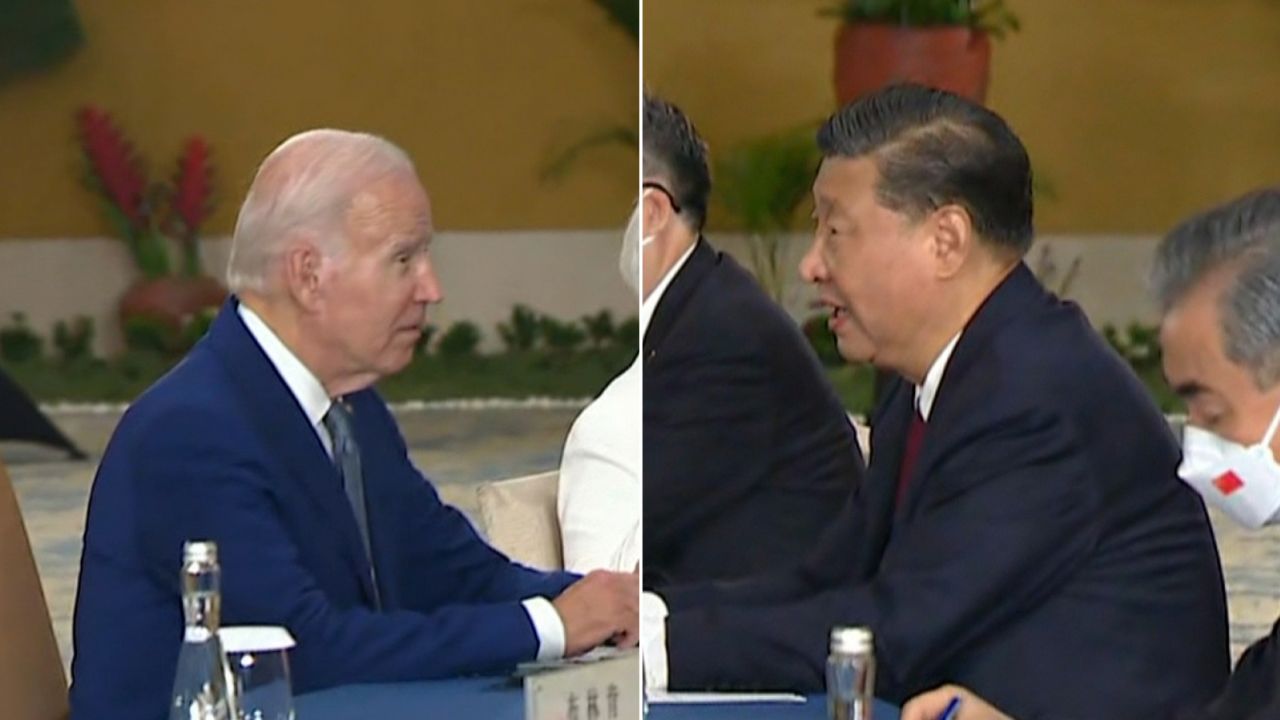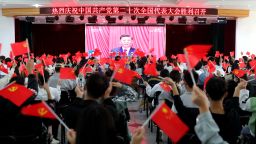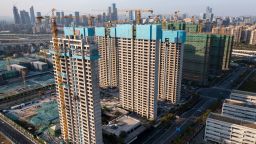Market sentiment on Chinese stocks hit rock bottom just weeks ago after President Xi Jinping secured a historic third term in power and stacked his top team with loyalists in a clean sweep not seen since the Mao era.
But in the past week, a series of unexpected steps by Beijing — the easing of draconian zero-Covid restrictions, moves to salvage the ailing property sector and Xi’s personal return to the world stage -— have triggered a huge rally.
Hong Kong’s benchmark Hang Seng (HSI) Index has gained 14% since last Friday, putting it squarely into bull market territory, or more than 20% above its recent low. A key index of Chinese stocks in New York jumped 15% during the same period.
On the tightly controlled mainland markets, Shanghai and Shenzhen stocks have also advanced more than 2%.
“China continued to see a barrage of upside activity… as reopening measures are a clear buy signal,” said Stephen Innes, managing partner for SPI Asset Management. “We are in a sea change after China’s more progressive policy evolution arrived unexpectedly.”
Investors now have a “tactically constructive” view on China after key concerns were addressed by credible policy actions, according to Bank of America’s monthly survey of Asian fund managers released on Wednesday.
Some investment banks even upgraded their China growth forecasts following the policy changes. On Wednesday, ANZ Research hiked its China GDP forecast to 5.4% for 2023 from 4.2% previously.
“The changes reflect the party leadership’s intention to stop losses. They want to correct the market’s perception of China’s economic outlook, as President Xi Jinping interacts with global leaders at G20,” it said.
Clear signals
Investors sold off China stocks in October due to fears that Xi’s tightening grip on power would lead to the continuation of existing policies, such as zero-Covid and the common prosperity campaign, that have dragged down the economy and battered financial markets.
A leadership team loyal to Xi also suggested that China may continue to prioritize ideology over the kind of pragmatic decision-making that had enabled the country’s swift economic rise over the past four decades.
But the latest policy shifts, although not a full-throated economic opening, have been enough to excite investors and analysts waiting for any sign of China easing its rules.
From Bali to Bangkok, Xi returned to the world stage after a near three-year absence. There were encouraging signs, in particular, coming from the historic meeting between Xi and US President Joe Biden on Monday, which fueled expectations for stronger economic ties between the two major world powers.
“The US’s willingness to set a ‘floor’ on US-China relations likely means the US is keen to find common ground with China to prevent extreme outcomes,” said Jefferies analysts in a research note earlier this week.
Chinese companies on Wall Street have been hammered by delisting risks since last year because of a simmering spat between the two countries over audits. In December, US regulators finalized rules to ban trading in shares of Chinese companies if they can’t access their audit papers, a request that had been denied by Beijing on national security grounds.
“We believe the Xi-Biden meeting could reduce the risk of Chinese ADRs being delisted,” the Jefferies analysts added.
In August, the two countries reached an agreement to allow US officials to inspect the audit papers of those firms, taking a first step toward resolving the dispute.
Reuters also reported Wednesday that US regulators gained “good access” in their review of auditing work done on New York-listed Chinese firms during a seven-week inspection in Hong Kong.
Too optimistic?
Despite this week’s rally, some analysts remain cautious. Qi Wang, CEO of MegaTrust Investment in Hong Kong, said the recovery may be driven by a lot of buying to close out previous short positions and money chasing quick returns.
“I don’t think the long-term appetite for China and Hong Kong shares will return so quickly. Right or wrong, there were some fatal blows to global investor confidence earlier this year,” Wang said.
“There is some good news recently, but the big institutional money still need time to assess the situation, including the economic prospect for next year,” he added.
Including the recent surge, the Hang Seng index is still down 23% this year, making it one of the world’s worst performing indices. The Nasdaq Golden China Index, a popular index tracking Chinese companies in New York, has plunged more than 33% so far in 2022.
“This week’s rally is a strong over-reaction to mildly positive news,” said Brock Silvers, Hong Kong-based chief investment officer at Kaiyuan Capital, a private equity investment firm. “The market was desperate for good news, but it’s foolish to think that once Covid is behind us we’ll return to the go-go days of high octane growth.”
Silvers added that the economic factors and political risks that made China “uninvestable” a month ago are still prevalent and are likely to reassert themselves before long.
China is still dealing with Covid outbreaks and remains firmly committed to measures long abandoned by most other nations. Even more serious is the real estate crisis and the risks that poses for the banking sector, he said, adding that the 16-point rescue plan Beijing announced last Friday did not go far enough.
Hao Hong, chief economist for Grow Investment Group, described the rally as sentiment-driven and technical in nature, because the market was previously oversold to an epic level.
But as winter is coming, Covid cases are set to rise.
“Whether we could deal with the resurgence with adequate medical facilities and without panic remains to be seen,” he said, adding it also remains uncertain how effective the new property support measures are and whether the developers can “rise from ashes.”
If China re-tightens Covid restrictions or US-China tension flares up again, market sentiment could plummet once more, he said.











